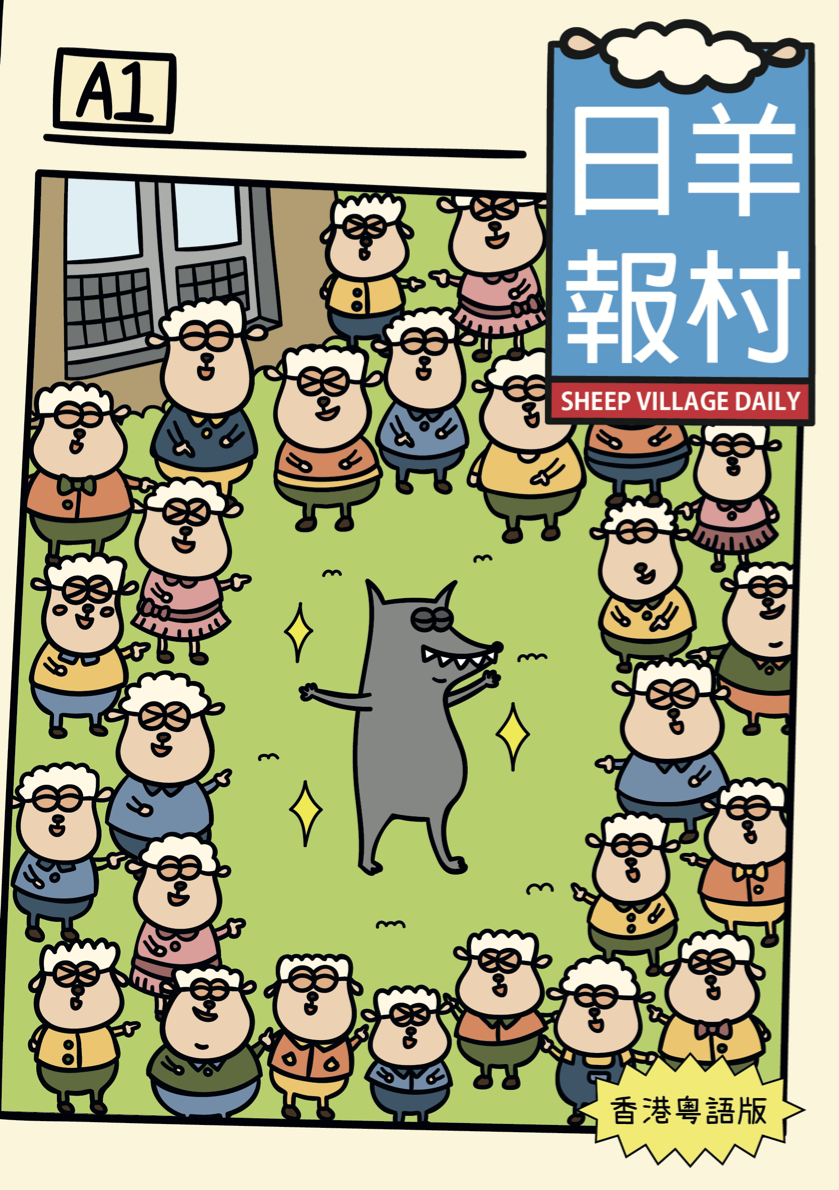
Sheep Village Daily (Cantonese and English Versions)
<i>Sheep Village Daily</i> is a children’s book in the <i>Sheep Village</i> series. This book describes the loss of press freedom in Hong Kong and the forced shutdown of Hong Kong’s <i>Apple Daily</i>.
The <i>Sheep Village</i> Series Children’s Picture Books
The <i>Sheep Village</i> series is a group of six children's books published by the General Union of Hong Kong Speech Therapists. The six books are titled <i>The Guardians of Sheep Village</i>, <i>The Twelve Warriors of Sheep Village</i>, <i>The Street Cleaners of Sheep Village</i>, <i>Voting Day in Sheep Village</i>, <i>Sheep Village Daily</i>, and <i>The Architects of Sheep Village</i>.
<i/>The Guardians of Sheep Village</i>, <i>The Twelve Warriors of Sheep Village</i>, and <i>The Street Cleaners of Sheep Village</i> were published in Hong Kong between 2020 and 2021, while the other three were not formally published and were mainly distributed on the Internet.
On July 22, 2021, the national security unit of the Hong Kong Police arrested five board members of the Hong Kong General Union of Speech Therapists, including its president Lai Man Ling and its external vice president Yeung Yat Yee Melody, as well as the union's three other board members, Ng Hau Yi Sydney, Chan Yuen Sum Samuel, and Fong Tsz Ho, on the charge of conspiracy to print, publish, distribute, display and/or reproduce seditious publications. The five defendants were denied bail and remanded in custody for nearly a year before trial. On September 10, 2022, Judge Kwok Wai-kin sentenced the five defendants to 19 months in prison.
The <i>Sheep Village</i> case was the first case involving the charge of conspiracy to print, publish, distribute, display and/or reproduce seditious publications since Hong Kong’s handover in 1997.
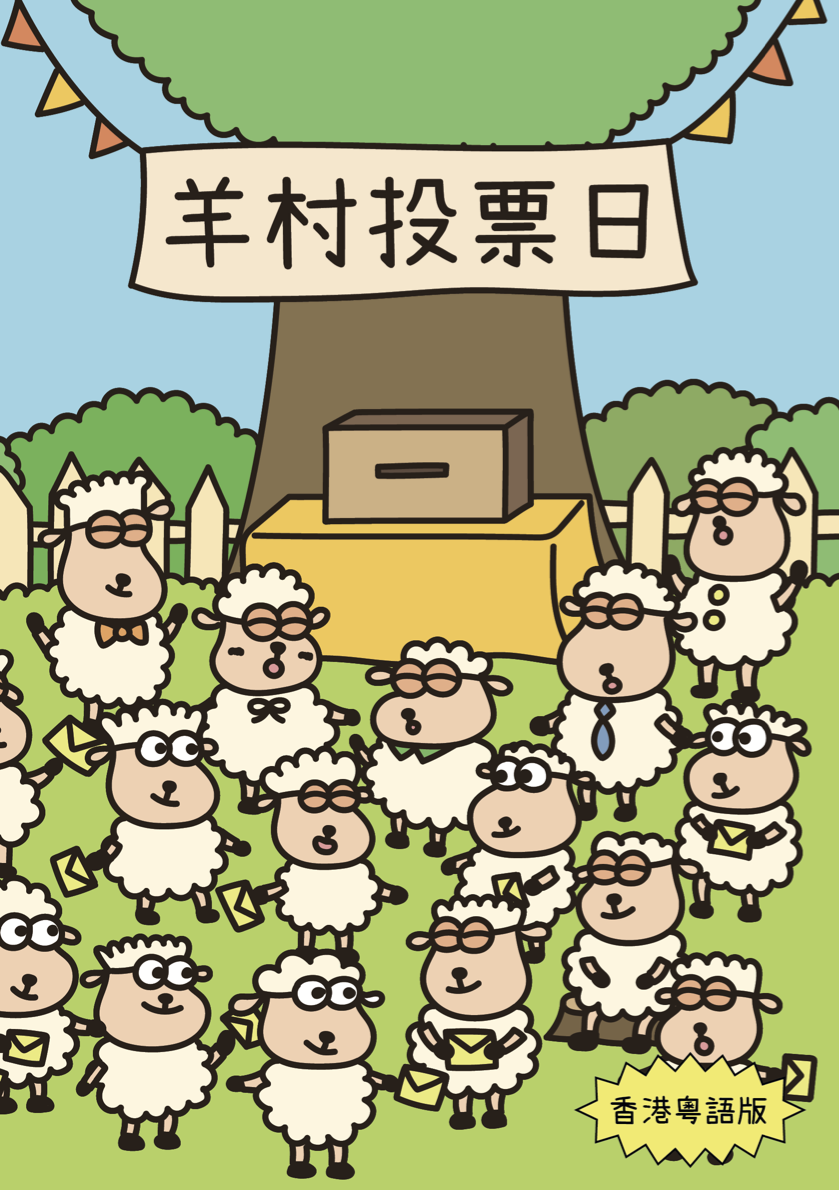
Voting Day in Sheep Village (Cantonese and English Versions)
<i>Voting Day in Sheep Village</i> is a children’s book in the <i>Sheep Village</i> series. This book outlines Hong Kong’s pro-democracy primaries in 2020 and the subsequent jailing of the primaries’ organizers.
The <i>Sheep Village</i> Series Children’s Picture Books
The <i>Sheep Village</i> series is a group of six children's books published by the General Union of Hong Kong Speech Therapists. The six books are titled <i>The Guardians of Sheep Village</i>, <i>The Twelve Warriors of Sheep Village</i>, <i>The Street Cleaners of Sheep Village</i>, <i>Voting Day in Sheep Village</i>, <i>Sheep Village Daily</i>, and <i>The Architects of Sheep Village</i>.
<i/>The Guardians of Sheep Village</i>, <i>The Twelve Warriors of Sheep Village</i>, and <i>The Street Cleaners of Sheep Village</i> were published in Hong Kong between 2020 and 2021, while the other three were not formally published and were mainly distributed on the Internet.
On July 22, 2021, the national security unit of the Hong Kong Police arrested five board members of the Hong Kong General Union of Speech Therapists, including its president Lai Man Ling and its external vice president Yeung Yat Yee Melody, as well as the union's three other board members, Ng Hau Yi Sydney, Chan Yuen Sum Samuel, and Fong Tsz Ho, on the charge of conspiracy to print, publish, distribute, display and/or reproduce seditious publications. The five defendants were denied bail and remanded in custody for nearly a year before trial. On September 10, 2022, Judge Kwok Wai-kin sentenced the five defendants to 19 months in prison.
The <i>Sheep Village</i> case was the first case involving the charge of conspiracy to print, publish, distribute, display and/or reproduce seditious publications since Hong Kong’s handover in 1997.

The Street Cleaners of Sheep Village (Cantonese and English Versions)
<i>The Street Cleaners of Sheep Village</i> is a children’s book in the <i>Sheep Village</i> series. This book outlines the tension between Hong Kong’s healthcare workers and the Hong Kong government at the outset of the COVID-19 pandemic in February 2020.
The <i>Sheep Village</i> Series Children’s Picture Books
The <i>Sheep Village</i> series is a group of six children's books published by the General Union of Hong Kong Speech Therapists. The six books are titled <i>The Guardians of Sheep Village</i>, <i>The Twelve Warriors of Sheep Village</i>, <i>The Street Cleaners of Sheep Village</i>, <i>Voting Day in Sheep Village</i>, <i>Sheep Village Daily</i>, and <i>The Architects of Sheep Village</i>.
<i/>The Guardians of Sheep Village</i>, <i>The Twelve Warriors of Sheep Village</i>, and <i>The Street Cleaners of Sheep Village</i> were published in Hong Kong between 2020 and 2021, while the other three were not formally published and were mainly distributed on the Internet.
On July 22, 2021, the national security unit of the Hong Kong Police arrested five board members of the Hong Kong General Union of Speech Therapists, including its president Lai Man Ling and its external vice president Yeung Yat Yee Melody, as well as the union's three other board members, Ng Hau Yi Sydney, Chan Yuen Sum Samuel, and Fong Tsz Ho, on the charge of conspiracy to print, publish, distribute, display and/or reproduce seditious publications. The five defendants were denied bail and remanded in custody for nearly a year before trial. On September 10, 2022, Judge Kwok Wai-kin sentenced the five defendants to 19 months in prison.
The <i>Sheep Village</i> case was the first case involving the charge of conspiracy to print, publish, distribute, display and/or reproduce seditious publications since Hong Kong’s handover in 1997.

The Twelve Warriors of Sheep Village (Cantonese and English Versions)
<i>The Twelve Warriors of Sheep Village</i> is a children’s book in the <i>Sheep Village</i> series. This book describes the incident in 2020 where twelve Hong Kong youths fled the city by boat but were intercepted by Chinese authorities and found guilty in Mainland Chinese courts.
The <i>Sheep Village</i> Series Children’s Picture Books
The <i>Sheep Village</i> series is a group of six children's books published by the General Union of Hong Kong Speech Therapists. The six books are titled <i>The Guardians of Sheep Village</i>, <i>The Twelve Warriors of Sheep Village</i>, <i>The Street Cleaners of Sheep Village</i>, <i>Voting Day in Sheep Village</i>, <i>Sheep Village Daily</i>, and <i>The Architects of Sheep Village</i>.
<i/>The Guardians of Sheep Village</i>, <i>The Twelve Warriors of Sheep Village</i>, and <i>The Street Cleaners of Sheep Village</i> were published in Hong Kong between 2020 and 2021, while the other three were not formally published and were mainly distributed on the Internet.
On July 22, 2021, the national security unit of the Hong Kong Police arrested five board members of the Hong Kong General Union of Speech Therapists, including its president Lai Man Ling and its external vice president Yeung Yat Yee Melody, as well as the union's three other board members, Ng Hau Yi Sydney, Chan Yuen Sum Samuel, and Fong Tsz Ho, on the charge of conspiracy to print, publish, distribute, display and/or reproduce seditious publications. The five defendants were denied bail and remanded in custody for nearly a year before trial. On September 10, 2022, Judge Kwok Wai-kin sentenced the five defendants to 19 months in prison.
The <i>Sheep Village</i> case was the first case involving the charge of conspiracy to print, publish, distribute, display and/or reproduce seditious publications since Hong Kong’s handover in 1997.
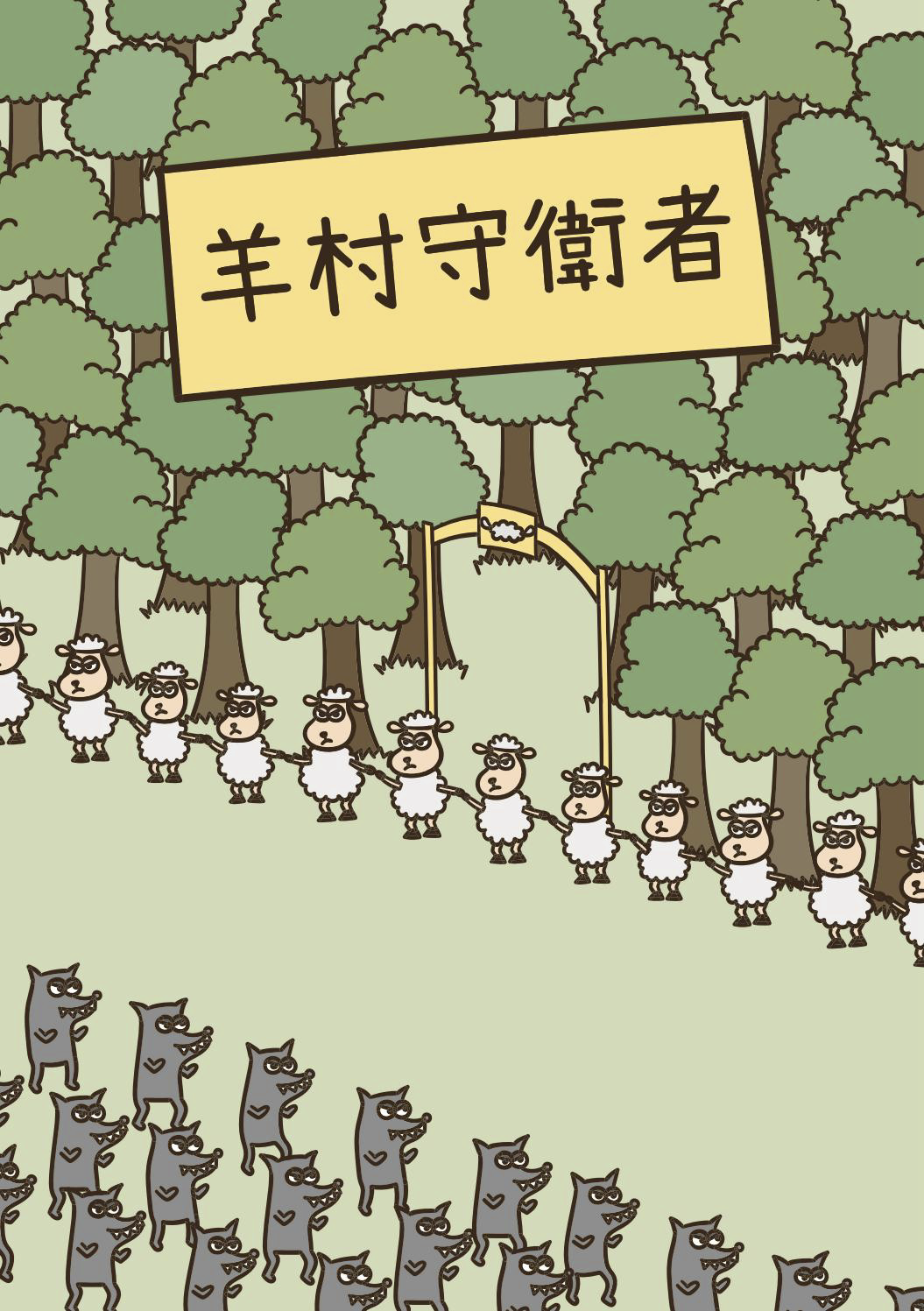
The Guardians of Sheep Village (Cantonese and English Versions)
<i>The Guardians of Sheep Village</i> is a children’s book in the <i>Sheep Village</i> series. This book outlines Hong Kong’s 2019 social movement and the relationship between Hong Kong and Mainland China by describing Hong Kong as a sheep village and Mainland China as a wolf village.
The <i>Sheep Village</i> Series Children’s Picture Books
The <i>Sheep Village</i> series is a group of six children's books published by the General Union of Hong Kong Speech Therapists. The six books are titled <i>The Guardians of Sheep Village</i>, <i>The Twelve Warriors of Sheep Village</i>, <i>The Street Cleaners of Sheep Village</i>, <i>Voting Day in Sheep Village</i>, <i>Sheep Village Daily</i>, and <i>The Architects of Sheep Village</i>.
<i/>The Guardians of Sheep Village</i>, <i>The Twelve Warriors of Sheep Village</i>, and <i>The Street Cleaners of Sheep Village</i> were published in Hong Kong between 2020 and 2021, while the other three were not formally published and were mainly distributed on the Internet.
On July 22, 2021, the national security unit of the Hong Kong Police arrested five board members of the Hong Kong General Union of Speech Therapists, including its president Lai Man Ling and its external vice president Yeung Yat Yee Melody, as well as the union's three other board members, Ng Hau Yi Sydney, Chan Yuen Sum Samuel, and Fong Tsz Ho, on the charge of conspiracy to print, publish, distribute, display and/or reproduce seditious publications. The five defendants were denied bail and remanded in custody for nearly a year before trial. On September 10, 2022, Judge Kwok Wai-kin sentenced the five defendants to 19 months in prison.
The <i>Sheep Village</i> case was the first case involving the charge of conspiracy to print, publish, distribute, display and/or reproduce seditious publications since Hong Kong’s handover in 1997.

Hong Kong Journalists: Chroniclers of June Fourth and Keepers of its Memory
In 1989, how did Hong Kong journalists chronicle the democracy movement in Tiananmen Square and how did they keep its memory alive throughout the decades that followed?

Dissent and Reflections on Marxism
The author of this book, Xiang Chengjian, is a survivor of the "Sparks" case. (For more details on the author, please follow the creator's hyperlink below.) This book is Xiang's critique and reflection on the theories and major works of Marxism.
(The following PDF attachment comes in three parts.)

Ten Years
<i>Ten Years</i> is a 2015 Hong Kong film composed of five short-film segments directed by Kwok Zune ("Extras"), Wong Fei-Pang ("Season of the End"), Jevons Au ("Dialect"), Kiwi Chow ("Self-Immolator"), and Ng Ka-Leung ("Local Egg"), starring Liu Kai-chi, Leung Kin-Ping, Catherine Chau, Neo Yau, and Ng Siu Hin.
<i>Ten Years</i> has been hailed as Hong Kong's prophecy because of the film's depiction of the decline of human rights, democracy, and freedom of speech in Hong Kong. The Chinese government has censored the film, ordering major online platforms in Mainland China to prohibit live broadcasting and rebroadcasting of the Golden Horse Awards and the Hong Kong Film Awards ceremonies in 2016. <i>Ten Years</i> won Best Film at the 35th Hong Kong Film Awards.

The Falun Gong Phenomenon
This book is a collection of several long articles and commentaries by Hu Ping on Falun Gong and the persecution and repression against Falun Gong practitioners. From an independent perspective, this book responds to a series of unfair criticisms and stigmatization of Falun Gong by the Chinese authorities and the public, calling on society to fight for the basic rights of Falun Gong practitioners who have been persecuted.
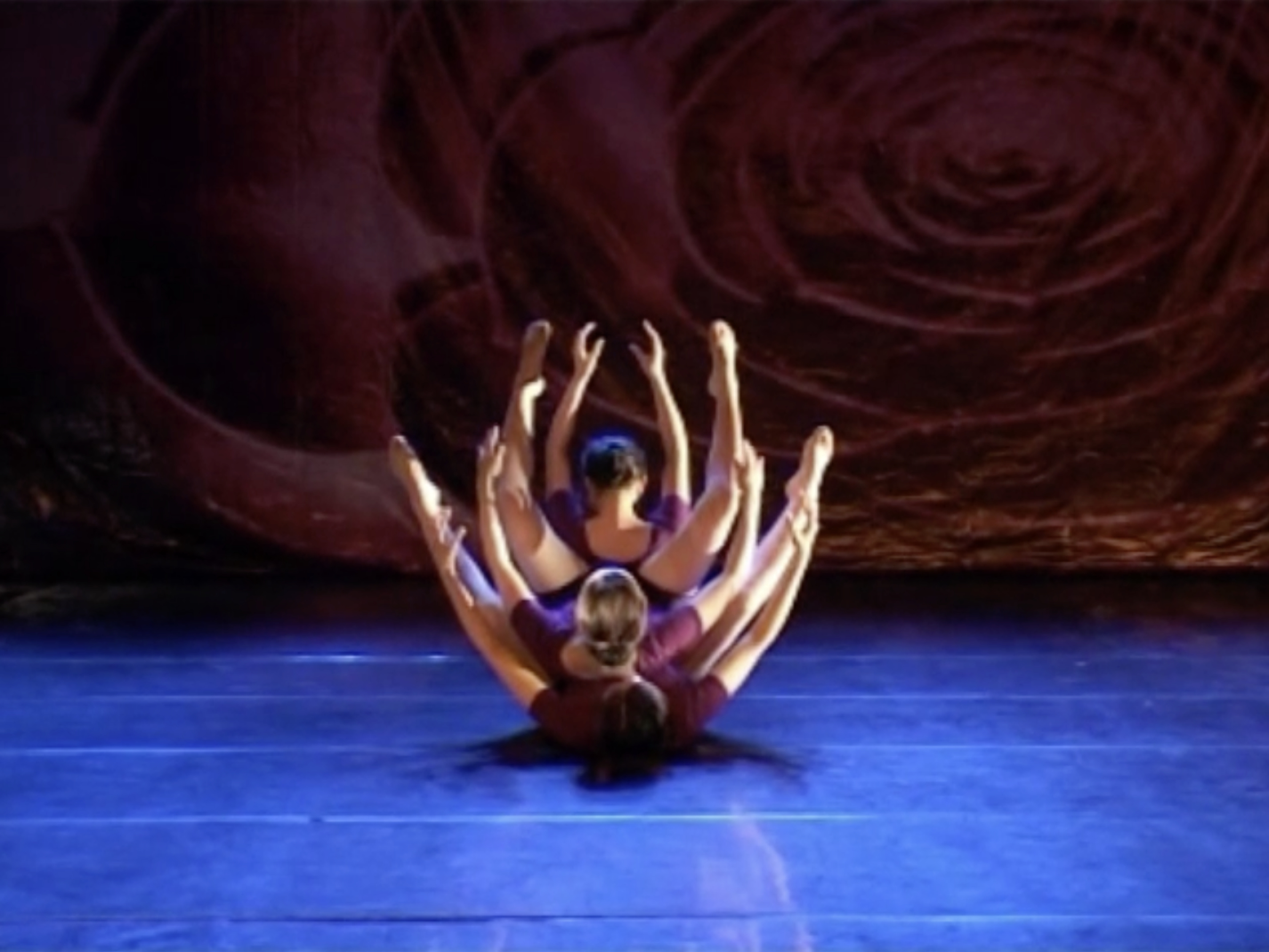
From The Vagina Monologues to The Female Monologues
From The Vagina Monologues to The Female Monologues, what is the status of women's issues in China?

Hu Ping
Hu Ping (1947- ) is a writer and commentator based in New York City. Hu was born in Beijing in 1947. He graduated from high school in Chengdu in 1966. During the Cultural Revolution, Hu reprinted Yu Luoke’s articles in his own publications. In 1969, Hu was sent down to labor in the suburbs of Panzhihua, Sichuan Province. In 1973, Hu returned to Chengdu for part-time work. In 1978, Hu was admitted to Peking University’s philosophy department and later received his Master’s degree there. In 1979, Hu participated in the Democracy Wall movement and published his long essay “On Freedom of Speech” in the <i>Fertile Ground (Wo Tu)</i> journal. In 1980, Hu ran for election and was elected a people’s representative representing Peking University and Haidian District in Beijing.
In 1987, Hu started his PhD at Harvard. Hu was elected president of China Alliance for Democracy from 1988 to 1991 and was the editor-in-chief of the journals <i>China Spring</i> and <i>Beijing Spring</i>. Hu is currently honorary editor-in-chief of <i>Beijing Spring</i> and a managing board member of Human Rights In China.
Hu’s major works include: <i>On Freedom of Speech</i>, <i>Reflections on China’s Democracy Movement</i>, <i>Man’s Domestication, Avoidance, and Rebellion</i>, <i>Cynical Disease</i>, <i>Why Mao Zedong Initiated the Cultural Revolution</i>, <i>Upside Down Justice - China's Ethnic Problem and Democratic Transition</i>, <i>The COVID-19 Catastrophe - A Disaster That Could Have Been Completely Avoided</i>.

The Vagina Monologues (Performance at Sun Yat-sen University)
<i>The Vagina Monologues</i> is a pioneering feminist drama created by the American playwright Eva Ensler. In 2003, teachers and students at the Gender Education Forum of Sun Yat-sen University in China adapted the play and added artistic interpretations of Chinese women's gender experience. The adapted play had its first performance at the Guangdong Provincial Art Museum on December 7, 2003. This video is a recording of that performance.
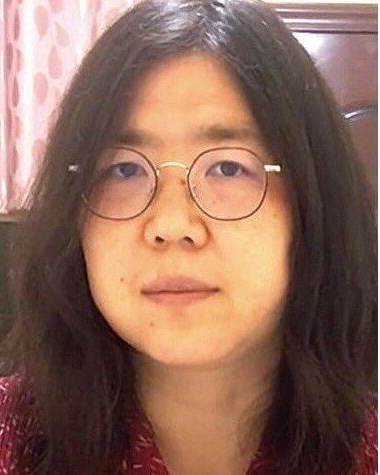
Zhang Zhan
Zhang Zhan (born September 2, 1983) is a citizen journalist from Xianyang, Shaanxi Province, China. She studied at Southwestern University of Finance and Economics, earning a bachelor's degree in insurance and a master's degree in finance. In 2010, she moved to Shanghai as part of a talent introduction program and worked as a lawyer. However, her legal practice license was revoked due to her involvement in rights protection activities and participation in a petition to amend the lawyer management regulations. In 2015, she was baptized and became a Christian.
In August 2018, Zhang Zhan was warned by the Hongkou District Police in Shanghai for her online remarks, suspected of "inciting subversion of state power." On April 19, 2019, she was detained for 10 days by the Pudong District Police in Shanghai on charges of "picking quarrels and provoking trouble."
Since the outbreak of the Hong Kong anti-extradition bill movement in 2019, Zhang Zhan actively shared videos and information about the protests and used performance art to show solidarity with Hong Kong. On September 8, 2019, she participated in a demonstration on Nanjing East Road in Shanghai, holding an umbrella with the words "End socialism, The Chinese Communist Party step down" written on it, to support the Hong Kong protests. She was detained for 65 days by the Shanghai police on charges of "picking quarrels and provoking trouble."
In February 2020, Zhang Zhan traveled to Wuhan to report on the COVID-19 outbreak, documenting the early challenges faced by residents and the government's response. She published 122 videos on her YouTube channel, providing a real-time account of the situation in Wuhan.
On May 14, 2020, Zhang Zhan was arrested by Shanghai police in Wuhan and detained on charges of "picking quarrels and provoking trouble." She was held in the Pudong New Area Detention Center. On June 18, 2020, she was formally arrested. In December 2020, the Shanghai Pudong New Area People's Court sentenced her to four years in prison. During her detention, Zhang Zhan chose not to appeal and refused to eat, continuing her protest.
Three days before Zhang Zhan's sentencing, on Christmas Eve 2020, scholar and documentary director Ai Xiaoming wrote an article titled "The Madman's Diary in the Age of the Pandemic—About Zhang Zhan." Professor Ai stated, "I have read Zhang Zhan's writings and have always been concerned about her situation. If Zhang Zhan is wrong, I can only say that she was born in the wrong era. She is not a person of the present but a person of the future—she lives the way future Chinese should live: laughing, cursing, daring to love and hate."
On July 31, 2021, due to severe malnutrition from her hunger strike, Zhang Zhan's weight dropped to below 40 kilograms. She was subjected to forced feeding, shackling, and 24-hour restraints. The One Free Press Coalition ranked her situation as the most urgent press freedom case globally. On November 19, 2021, the UN High Commissioner for Human Rights called for her immediate release.
On May 13, 2024, Zhang Zhan was released after serving her sentence. However, her whereabouts were initially unknown, raising concerns. On May 21, 2024, she confirmed her release and reunion with her family through a video. Reports indicated that her freedom might be restricted, and she could be under strict surveillance by the authorities. In August 2024, Zhang Zhan disappeared again and was detained in a detention center in Shanghai on charges of "picking quarrels and provoking trouble."
Zhang Zhan's long-standing activism and hunger strikes have attracted widespread international attention. She has received several international awards, including the 2021 Brussels Free University Freedom of Speech Honorary Award, the 2021 21st Youth China Human Rights Award, the "Lin Zhao Freedom Award", and the 21st Youth China Human Rights Award. On November 18, 2021, she received the Courage Award from Reporters Without Borders.
Despite enduring extreme physical and mental pressures, she has consistently upheld her stance. In <a href=”https://www.bbc.com/zhongwen/simp/chinese-news-55473938”>an interview with the BBC</a>, she stated, "I cannot retreat because this country cannot regress."
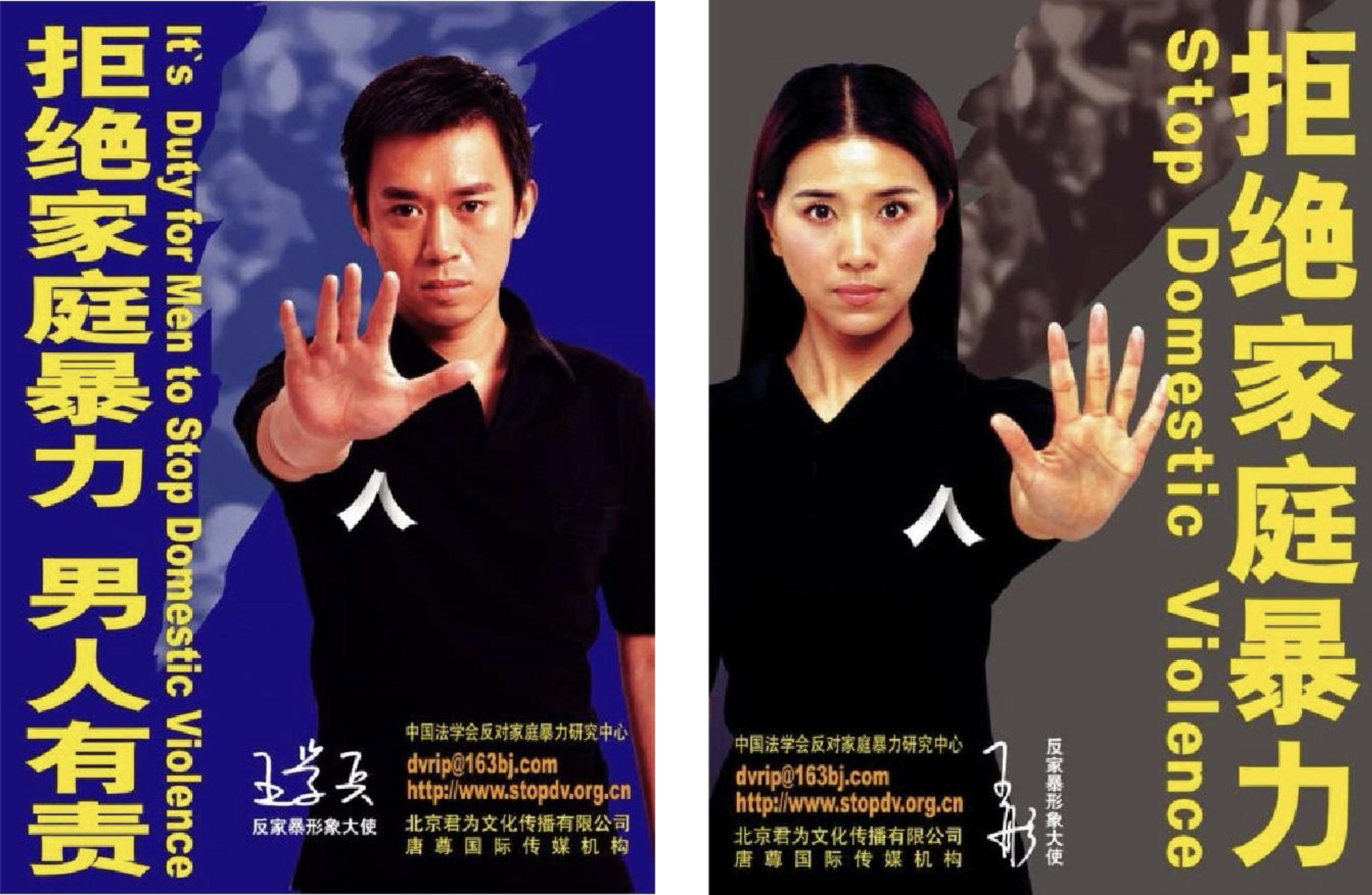
The Vagina Monologues' Journey in Mainland China
This article comprehensively documents the journey of the play <i>The Vagina Monologues</i> in Mainland China, including its many performances nationwide, as well as screenings of the play and events based on the play.
The author, Rong Weiyi, is an associate professor at the People’s Public Security University of China and an expert in gender studies, serving as a member of the China Women’s Studies Association, a member of the China Marriage and Family Studies Association, and a special researcher for the China Police Association.

Holding the Party to its Word: Rereading the 1999 Classic, The Herald of History
A book simply collected words by Communist Party leaders and articles published in the Party's newspapers. Why was the book banned?

NEWS STAND
NEWS STAND is a special issue of Hong Kong’s Stand News. Featuring selections of reporting and photography on Hong Kong's 2019 social movement, NEWS STAND presents readers with a first-hand account of Hong Kong’s history.
Established on December 30, 2014, Stand News ceased operations on December 29, 2021, after Hong Kong’s National Security Police raided the publication’s headquarters.
The Hong Kong Police charged Stand News, along with its top editors and board members, with “conspiracy to publish seditious publications” under sections 9 and 10 of the Crimes Ordinance for publishing a number of seditious articles. The preface of NEWS STAND was also used by the prosecution as evidence in court.
On December 30, 2021, former Editor-in-Chief Chung Pui-kuen and former Acting Editor-in-Chief Patrick Lam Shiu-tung were refused bail and remanded in custody.
The trial against Stand News began in October 2022 and lasted 57 days, with the verdict adjourned three times, resulting in a judgment on August 29, 2024, a span of 33 months from indictment to verdict.
Judge Kwok Wai-kin found Chung, Lam, and Stand News’ parent company guilty of criminal intent, finding that the political philosophy of Stand News was nativist and that it was “intended to incite hatred of the Chinese central government or the Hong Kong government and hatred of the judiciary.” Of the 17 articles presented by the prosecution, 11 were found by the judge to have inciting intent; Chung and Lam were respectively sentenced to 21 months and 11 months in prison.
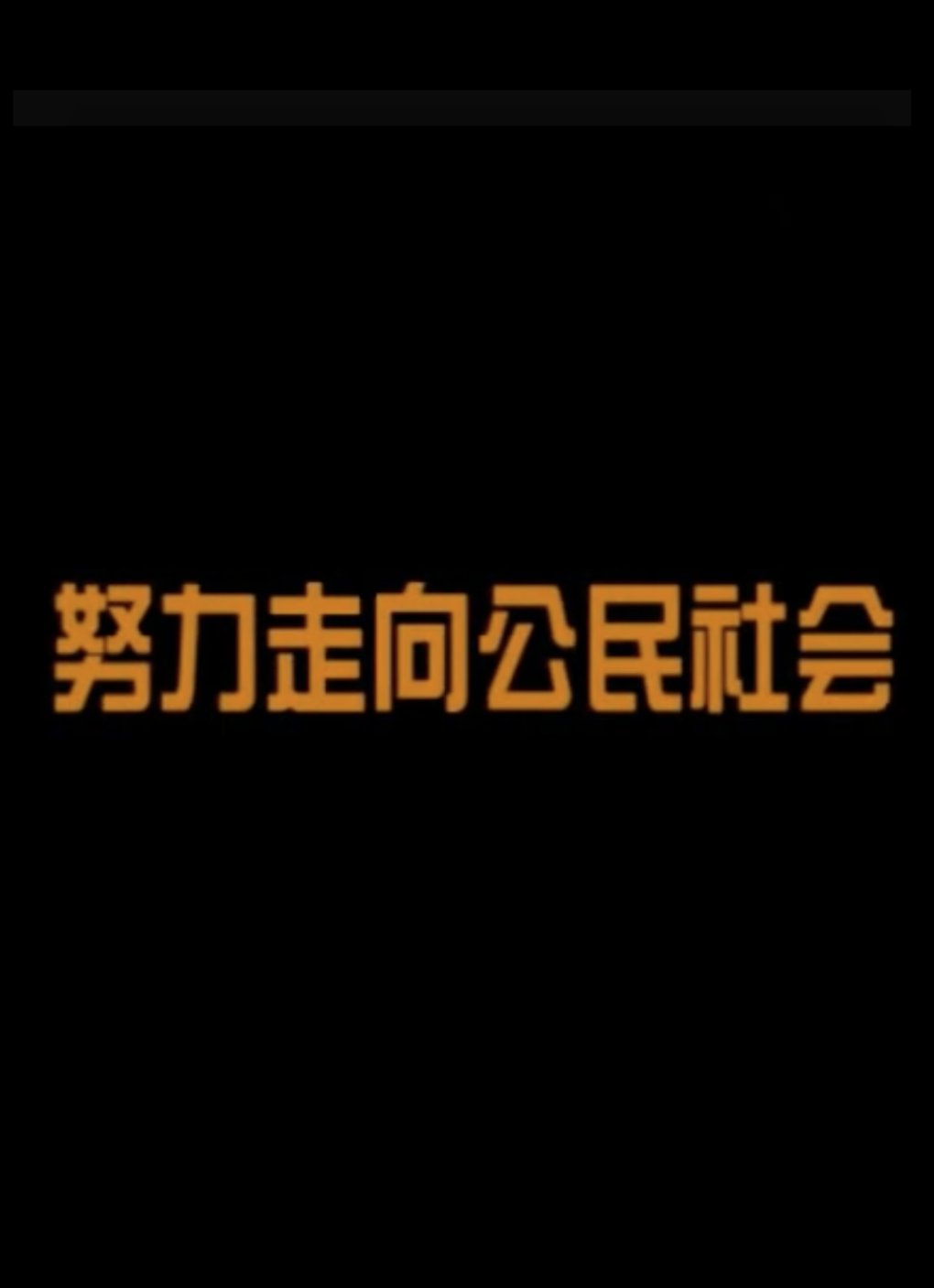
Working toward a Civil Society
How can China build a real civil society? Since 2010, independent director Tiger Temple sat for a series of interviews with scholars and civil society actors.
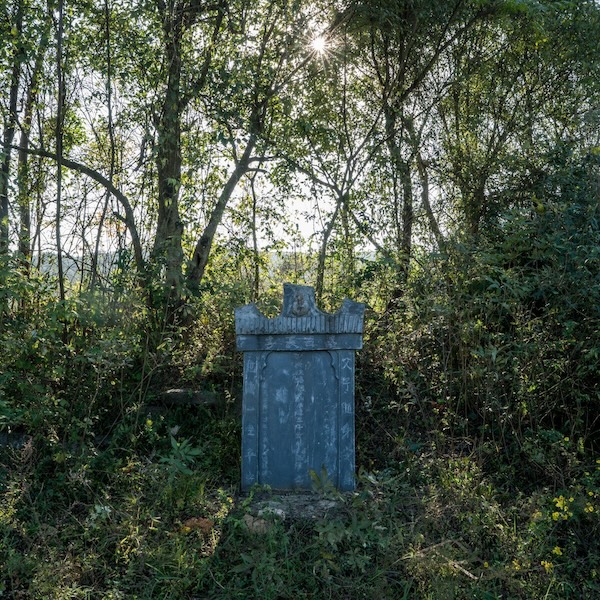
A new home for independent Chinese thinkers and a new publication: “Mining the Chinese Archives”
We have upgraded the Archives with an array of new features, including better graphic interface, a comprehensive database of Chinese independent thinkers, mapping functions, full-text searches as well as a weekly newsletter "Mining the Archives."